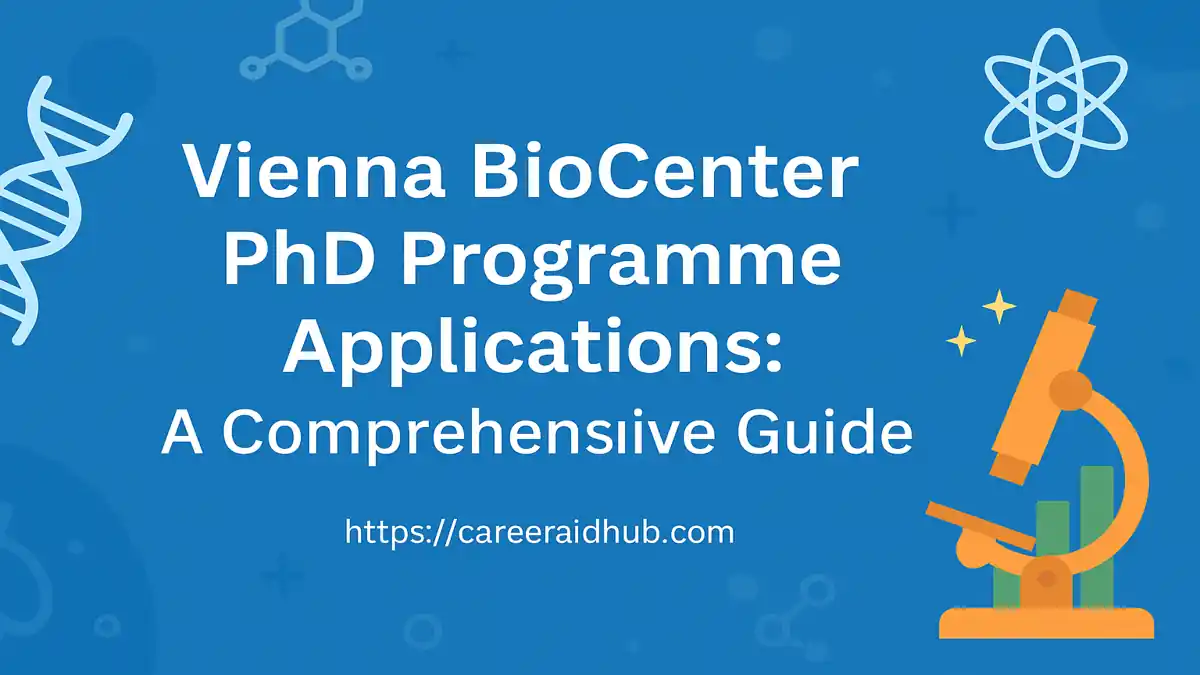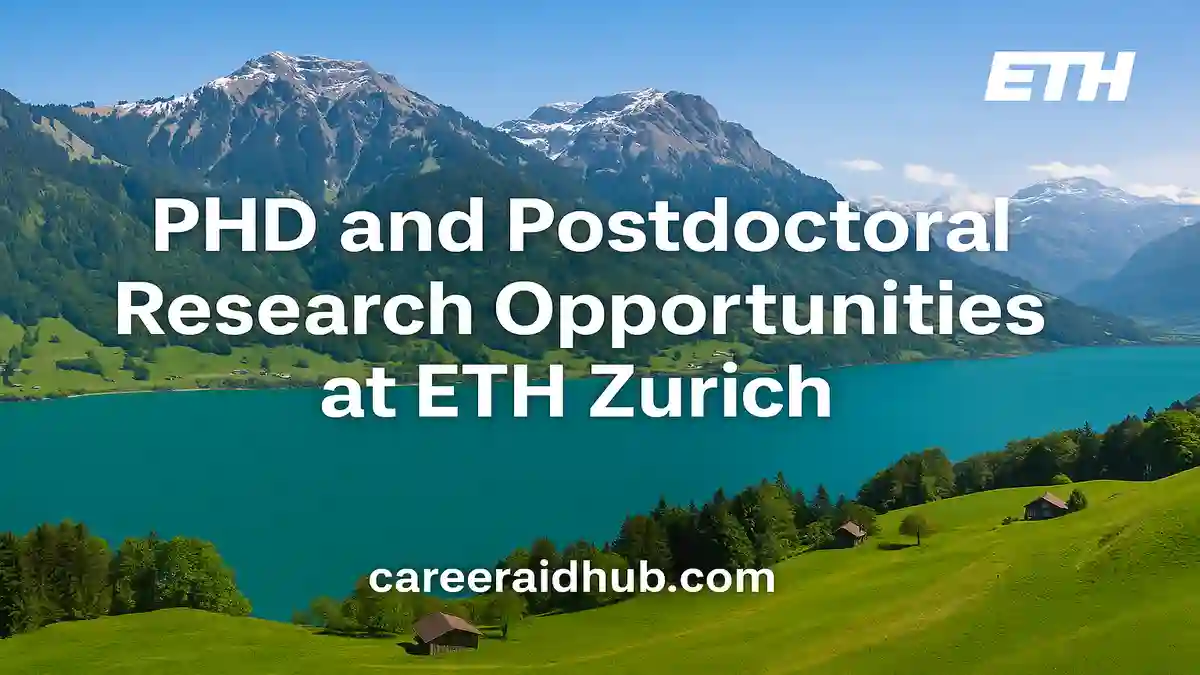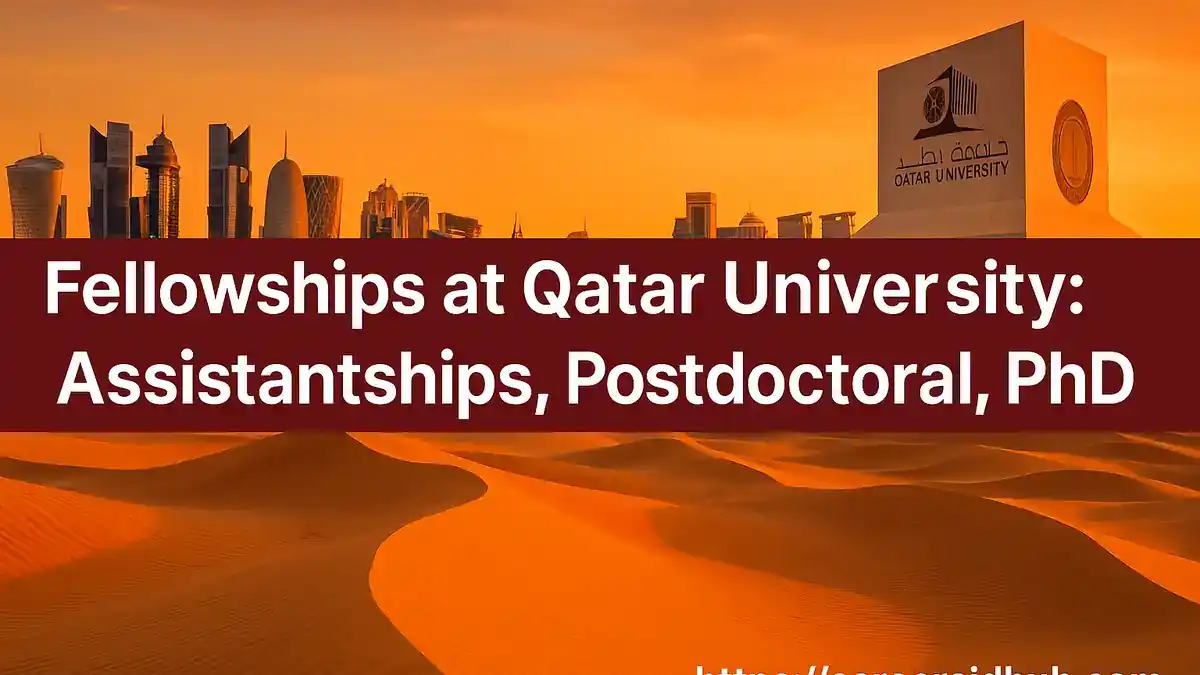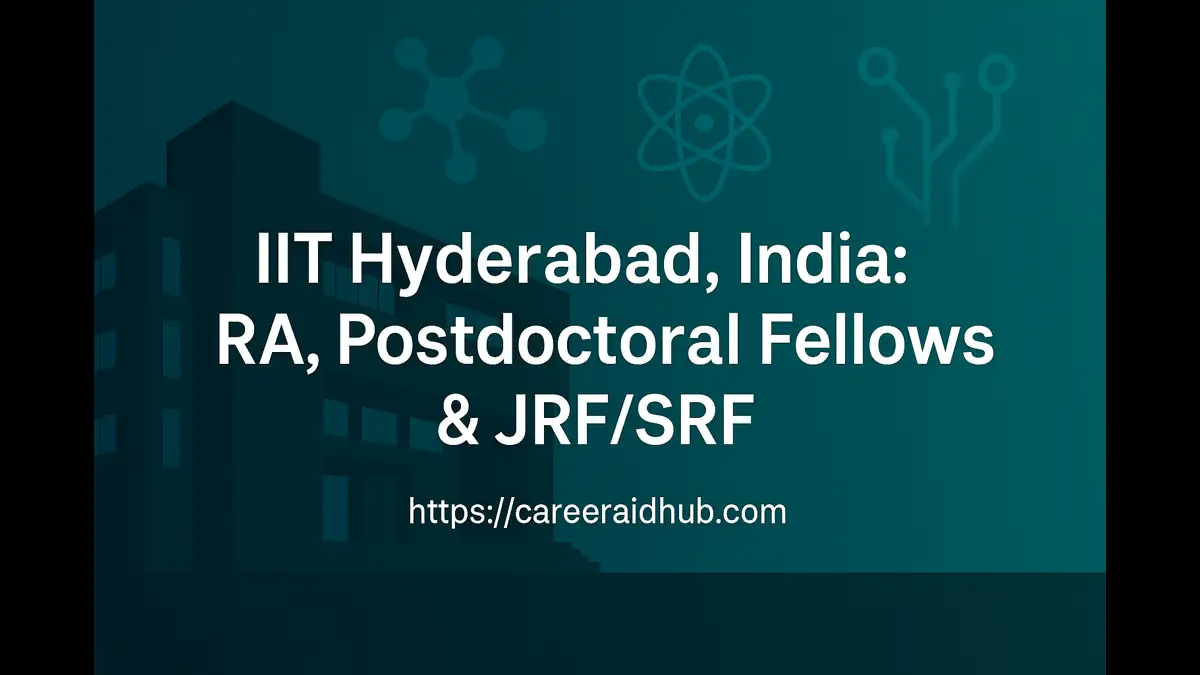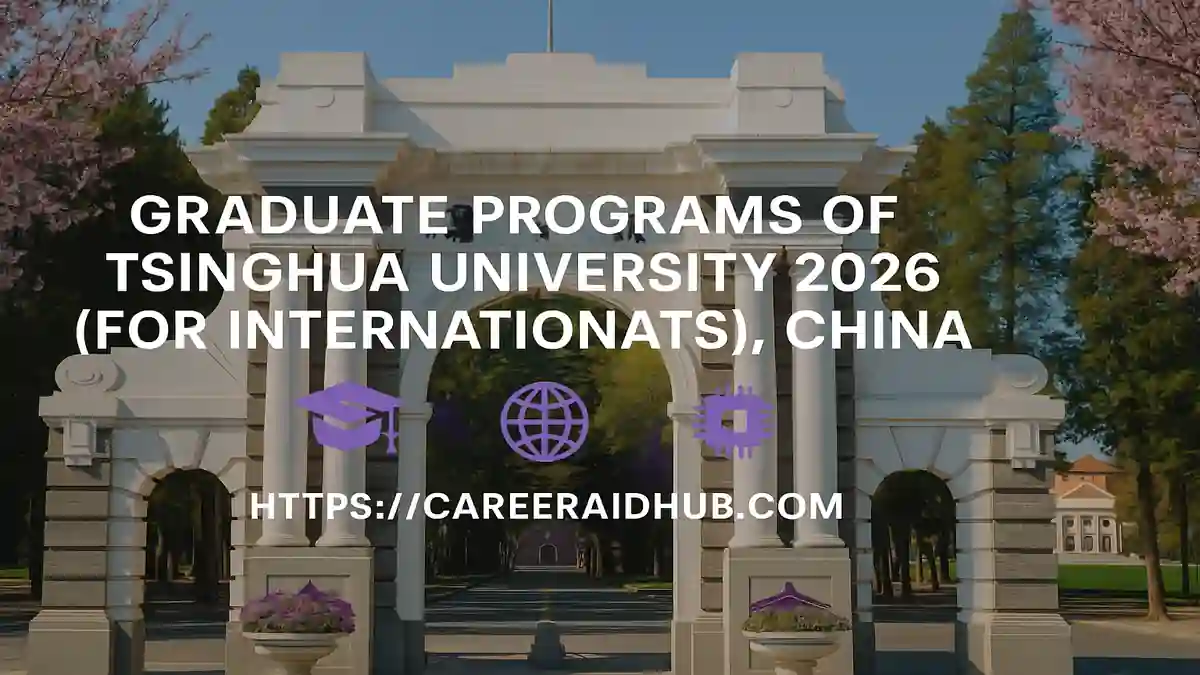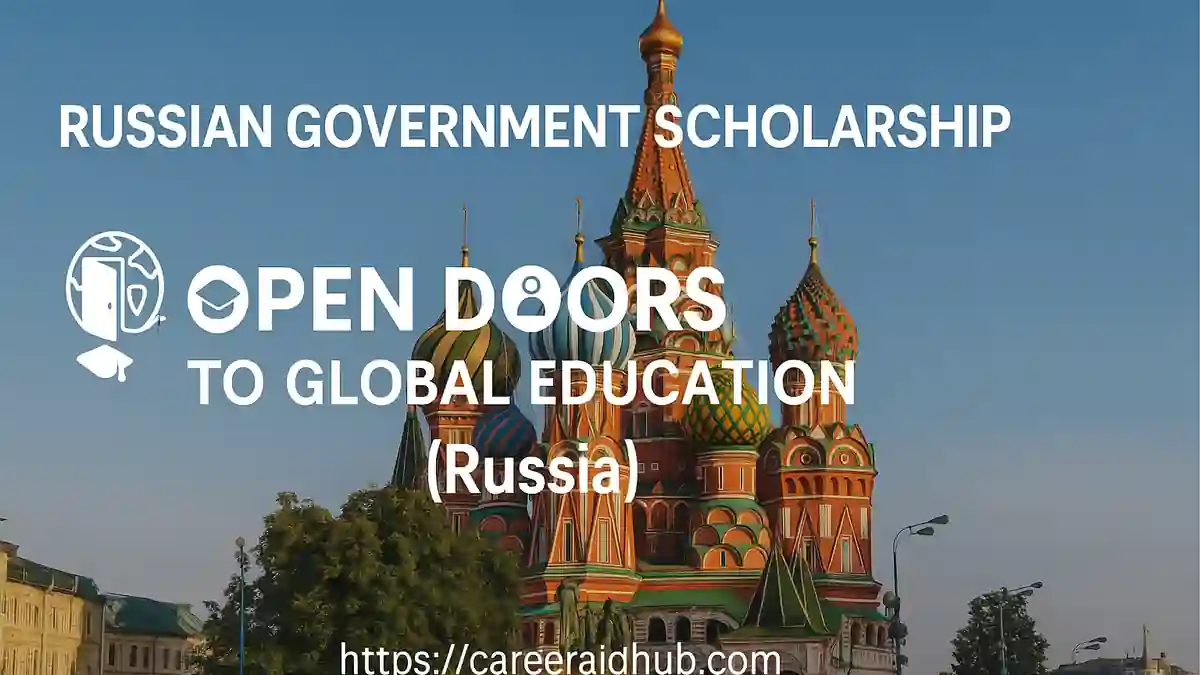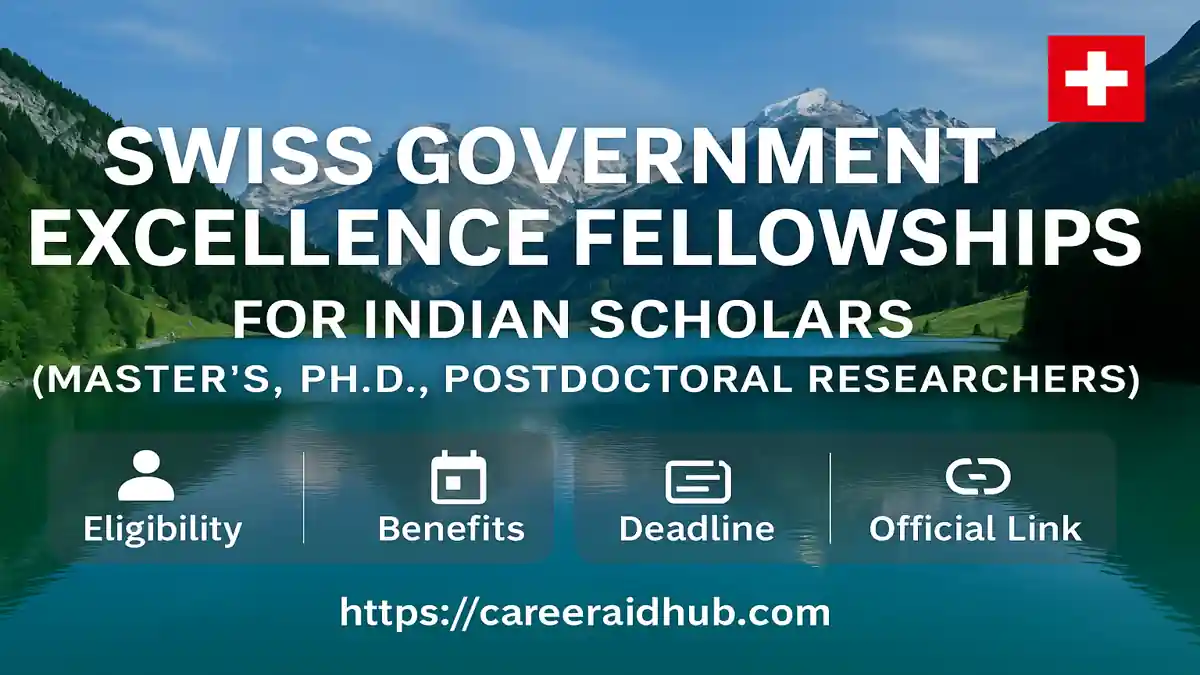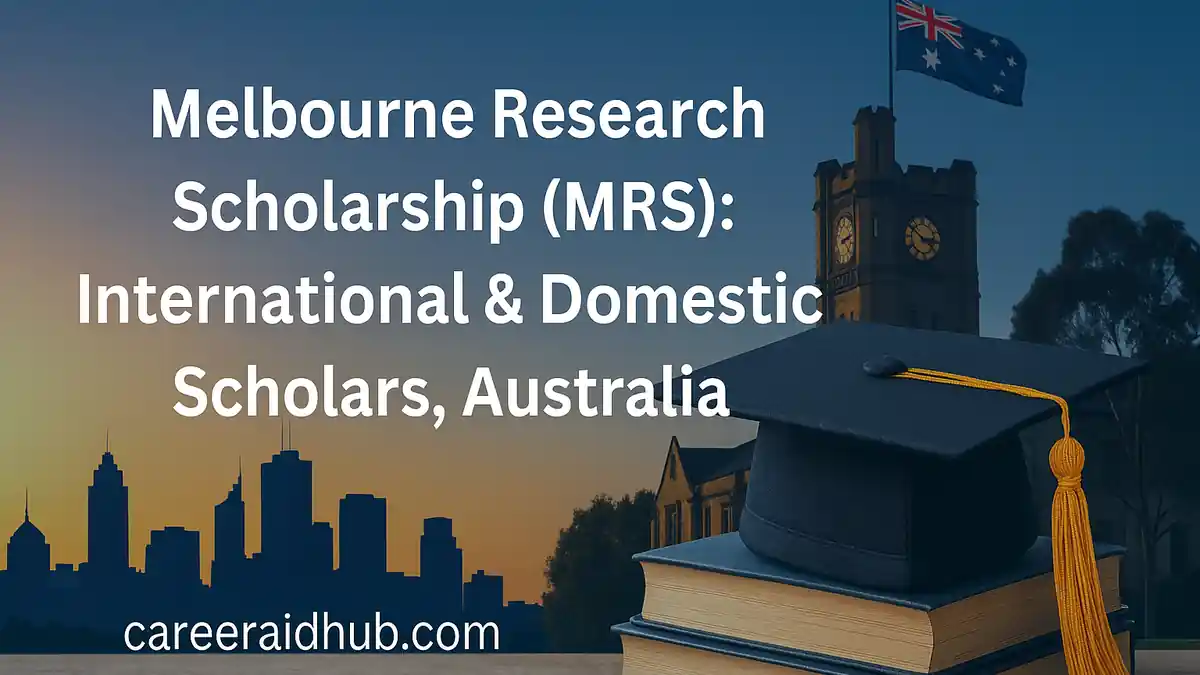Why Choose the Vienna BioCenter PhD Programme?
The Vienna BioCenter (VBC) PhD Programme stands as one of Europe’s most respected doctoral training schools, fostering cutting-edge research in molecular biology, genetics, biochemistry, and related disciplines.
Discover the Vienna BioCenter PhD Programme—an elite doctoral training opportunity in Europe for outstanding life science graduates. With world-class research facilities, structured training, and generous funding, this program empowers the next generation of scientific leaders. Here’s your complete guide to eligibility, deadlines, and the application process.
A Collaborative and Prestigious Scientific Ecosystem
This competitive programme is hosted within the Vienna BioCenter campus, which unites four leading research institutes: the Research Institute of Molecular Pathology (IMP), the Institute of Molecular Biotechnology (IMBA), the Max Perutz Labs, and the Gregor Mendel Institute (GMI). These institutions collaborate with the University of Vienna and the Medical University of Vienna, offering candidates access to more than 70 research groups led by internationally renowned principal investigators.
Interdisciplinary Approach and Advanced Infrastructure
The VBC PhD Programme emphasizes interdisciplinary research and scientific collaboration. Candidates benefit from state-of-the-art technology platforms, including genomics, bioinformatics, microscopy, and proteomics, which enable them to pursue ambitious and innovative research projects with a high degree of autonomy and support.
style="text-align: justify;">
Global Recognition and Career Impact
Alumni of the programme frequently publish in high-impact journals and pursue prestigious academic or industrial careers worldwide. The programme’s strong international orientation and scientific reputation make it a launchpad for leadership roles in the life sciences.
Application Cycles and Key Dates
The Vienna BioCenter offers two application calls each year, typically attracting over 2,000 applicants. Each cycle admits approximately 25 to 30 PhD students through a highly selective process.
Autumn 2025 Cycle
-
- Call Opens: September 2025
- Application Deadline: October 2025 (23:59 CET)
Note: Applicants must initiate Part 1 of the process by mid-October.
- Interview Schedule:
- Panel Interviews (Online): Late November 2025
- Virtual Campus Meetings: Early December 2025
- Research Group Interviews: Shortly after virtual meetings
- On-Campus Visits: Organized between December and February; the programme provides travel and visa assistance.
- Start Date for PhD: No later than June 2026
Spring 2026 Cycle
A second call is expected to open in March 2026, with selections concluding by May. Dates will be updated as the next cycle approaches.
We recommend checking the official site regularly for the latest updates.
Eligibility Criteria for Applicants
The VBC PhD Programme welcomes applications from candidates who meet the following academic and research qualifications:
Academic Qualifications
-
- A Master’s degree (or equivalent)
in a relevant life science discipline such as molecular biology, genetics, biotechnology, biochemistry, or biomedical sciences.
- Candidates must have completed a degree equivalent to at least 120 ECTS (European Credit Transfer System).
Research Experience
Applicants must have a minimum of six months of full-time research experience in a field aligned with the programme’s scope. This may include Master’s thesis work or research internships.
English Language Proficiency
While submission of English language test scores (e.g., TOEFL, IELTS) is optional, a high level of proficiency in spoken and written English is expected. Interviews and all programme activities are conducted in English.
Special Notes for International Degrees and Bachelor Graduates
-
- Applicants with non-European qualifications must provide GPA details and ensure academic transcripts are accompanied by official translations if not in English.
- Outstanding Bachelor graduates holding a 4-year degree with First Class Honors (equivalent to 240 ECTS) may apply if supported by substantial research experience.
Recommendation Letters
-
- A minimum of two references is required, with at least one from a research supervisor.
- Referees must
use institutional email addresses.
- A third referee may be added after initiating Part 1 of the application. No changes are permitted in the final week of the call.
How to Apply: A Step-by-Step Overview
The application process is structured into multiple stages to ensure clarity and thoroughness.
Step 1: Submit Part 1 of the Application
Applicants begin by providing personal information and contact details for their referees. After saving this section, they receive access to the second part of the application form.
Step 2: Complete Part 2 – Academic and Research Profile
This section includes:
-
- Education history
- Research experience
- Scientific interests and preferred research groups
Candidates can save drafts and edit responses before final submission. It is essential to download a PDF summary of the application for personal records before submission, as access is revoked afterward.
Step 3: Faculty Review and Shortlisting
Faculty members from the participating institutes evaluate all submissions. Top candidates (approximately 100) are shortlisted for panel interviews conducted via video conferencing.
Step 4: Group Interviews and Virtual Open
Day
Selected candidates engage in virtual discussions with PIs and current PhD students to understand group culture and expectations. Final interviews with potential supervisors follow shortly after.
Step 5: On-Campus Visits
Finalists may be invited for in-person lab visits between December and February. The programme offers logistical support, including travel funding and visa facilitation, for international candidates.
PhD Training Curriculum and Research Development
The VBC PhD Programme provides a structured academic framework that combines advanced scientific training with personal and professional development. Students must complete 30 ECTS of coursework and skill-building modules.
Prime Your PhD (6 ECTS)
This foundational course is a three-week intensive program conducted in June/July or January, focusing on scientific logic, experimental design, communication skills, and building collaborative networks.
Career Development Workshop (1 ECTS)
This one-day workshop introduces strategies for time management, conflict resolution, mentoring, and career planning.
Monday Seminar Series (1 ECTS per semester)
Students present ongoing research during weekly seminars, receiving constructive feedback and enhancing public speaking and critical thinking skills.
Additional Electives
Candidates may pursue supplementary courses offered by the University of Vienna or the Medical University of Vienna to fulfill their credit requirements. Topics often include advanced microscopy, data analysis, ethics in research, and scientific writing.
What Distinguishes the Vienna BioCenter Programme?
PhD Steering Committee
The programme is guided by a diverse and experienced committee including:
-
- Prof. Pavel Kovarik (Immunology)
- Prof. Tom Leonard (Structural Biochemistry)
- Prof. Julius Brennecke (RNA Regulation)
- Prof. Andrea Pauli (Developmental Biology)
The committee ensures academic excellence, ethical standards, and transparency in selection and mentoring processes.
Holistic Research Environment
Students benefit from an immersive scientific culture with access to workshops, international conferences, collaborative grants, and networking opportunities with leading global researchers.
Application Tips for Prospective Candidates
-
- Start early: Organize transcripts, research statements, and referee contacts well in advance.
- Customize your application: Align your interests with up to three research groups or PIs whose work resonates with your goals.
- Practice interviews: Prepare for technical questions, academic motivation, and communication assessments.
- Highlight unique experiences: Showcase problem-solving, scientific curiosity, and team collaboration in your application.
Final Thoughts and What to Expect Next
The Vienna BioCenter PhD Programme offers a prestigious, fully funded opportunity to work in one of Europe’s most innovative scientific environments. Candidates receive unparalleled mentorship, exposure to global networks, and access to pioneering life science research infrastructure.
As you prepare to apply for the upcoming Autumn 2025 or Spring 2026 cycle, be meticulous in compiling your application materials, and regularly monitor the official VBC application portal for announcements and updates.
We recommend reviewing this article every 6–12 months to ensure compliance with the latest eligibility criteria and application procedures.
Programme Snapshot
|
Feature
|
Details
|
|
Program Name
|
Vienna BioCenter PhD Programme
|
|
Host Country
|
Austria
|
|
Funded By
|
Vienna BioCenter (IMP, IMBA, GMI, Max Perutz Labs)
|
|
Duration
|
3–4 years
|
|
Study Mode
|
Full-time, On-site (Vienna, Austria)
|
|
Eligibility
|
Master’s or exceptional Bachelor’s in Life Sciences
|
|
Financial Support
|
Monthly stipend, travel & visa support, tuition-free
|
|
Fields of Study
|
Molecular Biology, Biochemistry, Genetics, Immunology, Bioinformatics
|
|
Next Deadline
|
Spring Call:
Opens on 01 March 2026
Deadline- written applications & references: 15 April 2026
|
|
Official Website
|
Click here |
References
- Vienna BioCenter. (n.d.). PhD Programme Overview. Retrieved from https://training.vbc.ac.at
Frequently Asked Questions (FAQs)
What is the Vienna BioCenter PhD Programme? The Vienna BioCenter PhD Programme is a fully funded doctoral training program in molecular life sciences offered by top research institutes in Vienna, Austria.
Who can apply for the Vienna BioCenter PhD Programme? Applicants with a Master’s degree or an exceptional four-year Bachelor’s degree in life sciences and strong research experience can apply.
When does the Vienna BioCenter PhD application open? The programme offers two calls each year, typically opening in March and September. Check the official website for updated deadlines.
How competitive is the Vienna BioCenter PhD admission? The programme receives over 2,000 applications annually, selecting only about 25–30 students per cycle based on merit and research alignment.
Do I need an English language certificate for VBC PhD? While not mandatory, submitting TOEFL, IELTS, or CPE scores is recommended to demonstrate English proficiency during selection.
What documents are required for the VBC PhD application? You need academic transcripts, a CV, a statement of motivation, and contact details of two or three academic referees.
Is the Vienna BioCenter PhD fully funded? Yes, selected PhD students receive a monthly stipend, tuition waiver, travel support, and visa assistance throughout their study period.
Can I choose my supervisor in the VBC PhD Programme? Yes, shortlisted applicants interact with potential supervisors during interviews and can list preferred research groups in the application.
How long is the Vienna BioCenter PhD Programme? The typical duration of the programme is between 3 to 4 years, depending on the research progress and publication requirements.

